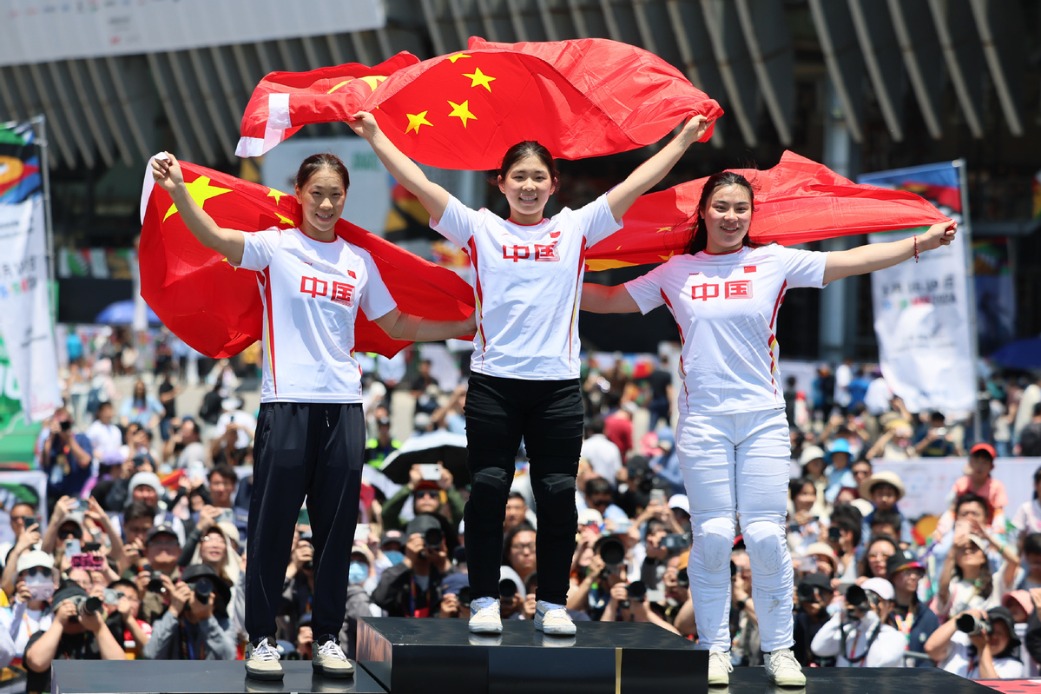Path cleared for Iraq, Kuwait to boost ties
By JAN YUMUL in Hong Kong | China Daily | Updated: 2022-02-21 10:11
With Iraq completing more than $52 billion in reparations in relation to its 1990 invasion of Kuwait, the two sides can now focus on boosting their economic ties and contributing to peace-building efforts in the Middle East, experts said.
Amjed Rasheed, a senior researcher at Open Think Tank, an organization promoting peace and social change in the Kurdistan Region of Iraq, said that given the political instability in Iraq, the completion of the payments to Kuwait is "an achievement".
On Feb 9, the United Nations Compensation Commission, which was created to ensure restitution for Kuwait after the Iraqi invasion three decades ago, announced that it had processed its final claim, amounting to $52.4 billion in total.
It said that about 1.5 million claims were awarded out of a total of about 2.7 million lodged with the commission. The plaintiffs included individuals, companies and governments that proved they had suffered damage resulting from the invasion.
The payout was sourced from the UN Compensation Fund, which received a percentage of the proceeds generated over the years from the exports of Iraqi petroleum and petroleum products, according to the UN.
With the reparations completed, the two nations "can establish economic relations, especially in the energy sector", said Rasheed, who is also a Hillary Clinton Fellow at Queen's University Belfast in Northern Ireland.
"In Arab tradition, paying compensation for blood eliminates the prospect of revenge. In the international relations game, I think Kuwait and Iraq are prepared to move forward and establish meaningful friendly relations," said Rasheed.
That said, relations between the two sides face challenges due to "geopolitical realities", he said.
Development and stability
Sujata Ashwarya, a West Asia expert and associate professor at Jamia Millia Islamia, a university in New Delhi, said that both parties recognize that peaceful relations will lead to economic development and stability. Ashwarya said that the most important aspect of the agreement is "Iraq's fulfillment of its international obligations".
"Iraq has slowly but steadily closed one of the most difficult and time-consuming files in its regional relations, which was weighing on its economy. Iraq can now focus on economic recovery, foreign investment and national infrastructure rebuilding," she said.
And if this momentum is maintained, it can make the two Arab nations more stable and prosperous, "with a salutary impact on the region", she said.
In August 1990, Iraq invaded Kuwait in an effort to gain more control over the Middle East's lucrative oil supplies.
At the end of February 1991, then Iraqi president Saddam Hussein signed a cease-fire agreement with the UN Security Council in which Iraq agreed to surrender all weapons of mass destruction and pay damages for its seven-month occupation of Kuwait.
Clemens Chay, a Gulf expert and research fellow at the Middle East Institute of the National University of Singapore, said the "sense of finality" will help turn a page in bilateral relations between Kuwait and Iraq, while the reparations also mark the weight of a rule-of-law approach. "The last time reparations on such a scale happened was in the immediate (post-World War II) period."
Rasheed said he believes the Iraq-Kuwait reparations settlement will have a "spillover effect "on the peace-building process in the Middle East.
























